Contents
Affiliate marketing is getting more competitive by the day, so staying ahead means adopting fresh strategies. One effective way to boost your success is to optimize affiliate links with keywords. This simple tweak can improve your visibility, click-through rates, and earnings.
But let’s be real – you can’t just wake up one day and decide to optimize all your affiliate links without a plan. You’ll need to:
- Understand Your Audience and Niche: Get to know who your audience is and what they’re searching for. Without this, your efforts might miss the mark.
- Do Some Solid Keyword Research: Keywords are the words and phrases your potential customers are searching for. Finding the right ones requires some digging and the right tools.
- Create Quality Content Around Those Keywords: Once you’ve got your keywords, the next step is to create engaging and valuable content that incorporates them naturally. Good content not only attracts visitors but also keeps them around and more likely to click on your affiliate links.
Feeling overwhelmed? Don’t worry. That’s where PrettyLinks comes in.
PrettyLinks is a fantastic tool that can simplify this whole process. With PrettyLinks, you can easily manage, cloak, and optimize your affiliate links with keywords, making them more attractive and effective.
Why Do You Need to Optimize Affiliate Links with Keywords?
Affiliate Links that are keyword optimized not only help you rank higher in Google results, but they can also increase your overall engagement and conversion rates.
By aligning your links with what people are searching for, your content becomes easier to find, more relevant to your readers, and highly effective at gaining more clicks.
And how’s this for the cherry on top perk: With keyword-optimized links, your affiliate site will take off faster than your competitors!
Key Benefits of Keyword Optimization for Affiliate Links:
- Higher Search Engine Rankings: Strategically placing appropriate keywords in both your affiliate links and content boosts your online visibility. This makes it easier for potential customers to find you, leading to increased sales.
- Improved Click-through Rates (CTR): Keywords that resonate with your audience make your links more relevant, significantly enhancing the CTR. Users are more likely to click on and purchase from links that clearly indicate their purpose.
- Better User Experience: Optimized keywords clearly communicate the destination of each link, reinforcing users’ confidence in their clicks. When users know exactly where a link will take them, they’re more likely to trust and engage with it. This transparency enhances the overall user experience and increases the likelihood of conversions.
Things to Consider Before You Optimize Affiliate Links with Keywords
Optimizing your affiliate links with keywords is an important first step towards better performance; but as we mentioned earlier, there’s a bit more to it than simply plugging in high-volume search terms.
Let’s go over a few important considerations that will help fine-tune your approach, making sure your links are effectively optimized and more likely to convert.
Understanding Your Audience and Niche
Effective keyword research starts with a deep understanding of your audience and the specific niche you consider yourself an expert in. Thankfully, you don’t have to figure those out all on your own.
Tools like Google Trends, SEMrush, and All-in-One SEO are great for discovering what your audience is searching for.
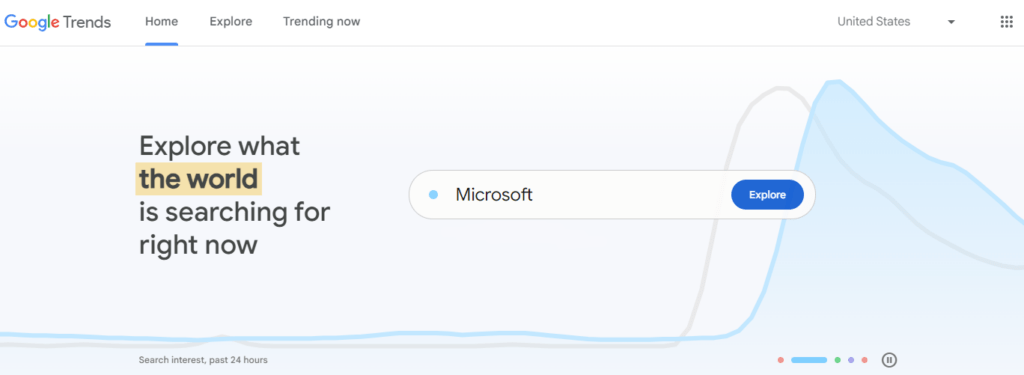
Next, focus on your niche. Stay updated on current discussions, popular topics, and new trends. Being in the loop helps you create content that’s relevant and engaging. Platforms like HubSpot and similar CRM tools can also manage your user database.
By using these tools, you can easily analyze your audience’s demographics, preferences, and behavior, then tailor your keywords accordingly. This way, you’re not just guessing what people want – you know it.
Conducting Necessary Keyword Research
Once you get a good grip on who your audience is and what they’re searching for, your content should directly reflect these findings. You want your words to sync up with what they’re typing into search engines: Word. For. Word.
There are plenty of tools that can help you with this next keyword research step, but picking the right one comes down to what you need specifically. And we have just the right suggestions for your affiliate keyword research.
For those just starting out, you can get a lot done without spending a dime. Free tools like Google’s Search Console and Keyword Planner are great for getting your bearings.
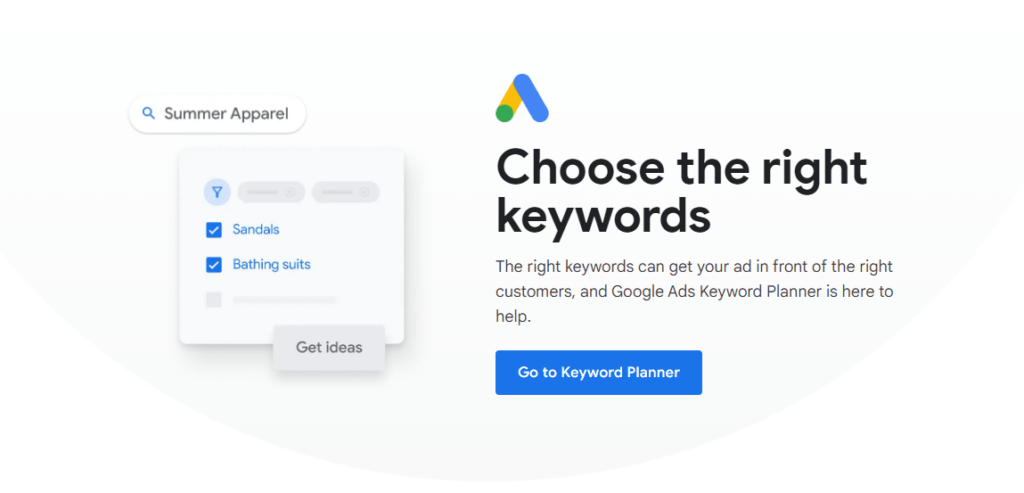
They help you understand the basics like search volume and trends, and provide insights into how your current content is performing. This foundational knowledge is essential for setting your initial strategy.
As you become more comfortable and look for deeper insights, premium tools such as Ahrefs, SEMrush, and SEObuddy offer more advanced features.
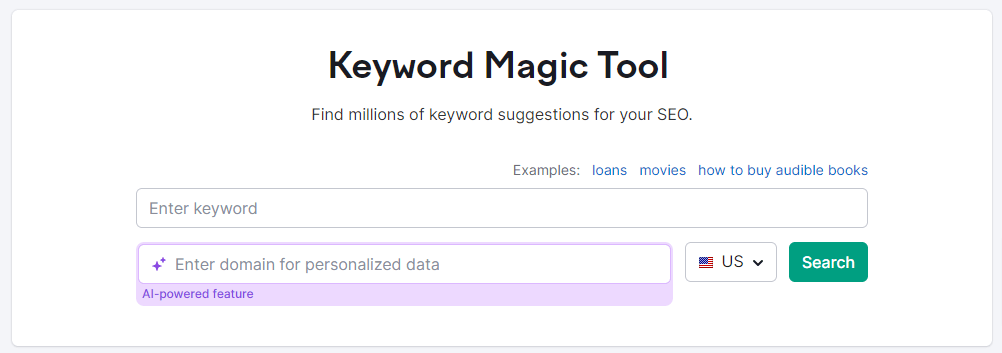
They can help you navigate the competitive landscape, providing detailed search volume data, keyword difficulty scores, and sophisticated suggestions for keyword opportunities.
No matter which SEO tool you choose, focusing on the long-tail keyword suggestions is the smartest approach. These keywords, generally three or more words long, are highly specific with less competition than shorter, more generic terms.
For example, instead of targeting a broad term like “running shoes,” opting for a long-tail keyword such as “best running shoes for flat feet” can significantly enhance your targeting.
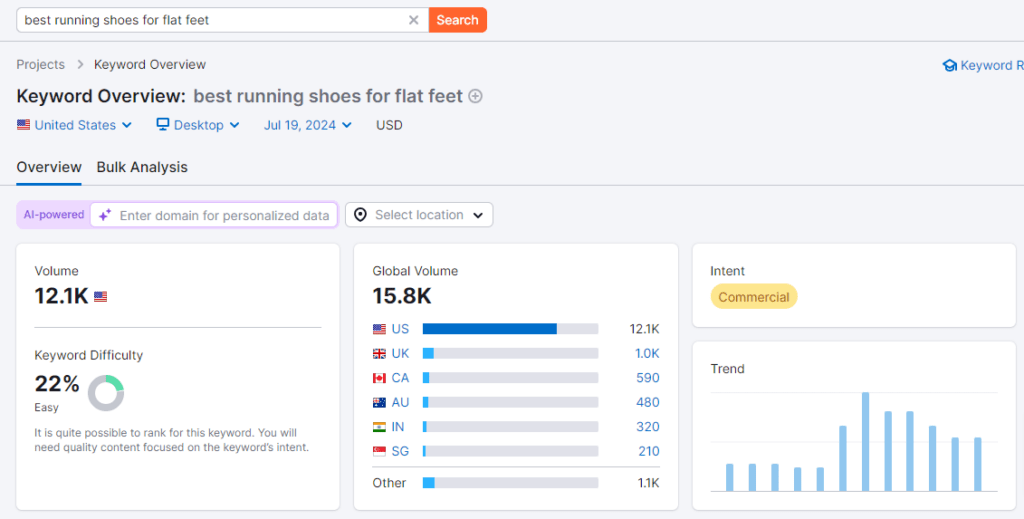
By targeting precisely what your potential customers are searching for, you position your affiliate links in front of a highly targeted audience, boosting the chances these visitors will convert into sales.
Creating High-Quality Content
High-quality content is essential for attracting and retaining readers. If your content doesn’t provide genuine value, visitors won’t stick around on your site. No visitors = no sales.
That’s why it’s so important to focus on crafting content that is both informative and engaging. Product reviews, how-to guides, and comparison posts are particularly effective for integrating affiliate links.
They not only offer valuable information but also create natural opportunities to introduce products in a context that encourages purchasing.
Keeping your content updated is equally important. Regularly revising articles and affiliate links to reflect the latest trends ensures that your site remains relevant. This way, you’ll always be able to place up-to-date keywords and improve overall rankings.
Integrating the Keywords Naturally
Search engines are getting smarter and can easily spot when you’re just throwing keywords around, which can actually drop your site’s ranking.
It’s not enough to just sprinkle keywords everywhere – you’ve got to weave them into your content carefully.
Easily optimize your content by incorporating keywords thoughtfully into titles, headings, meta descriptions, and the body of the text where they fit naturally. You should also focus on descriptive anchor text for your affiliate links.
Instead of generic phrases like “click here,” use keyword-rich phrases like “best budget laptops.”
This practice not only helps improve your SEO but also enhances the user experience by making your content more informative and clickable.
Monitor and Analyze Performance
Last but not least, regular monitoring is an excellent way of seeing which keywords are bringing in results and which aren’t. Based on this analysis, you can make data-driven decisions in your keyword research.
To effectively track and analyze keyword performance, consider using tools like Google Analytics, MonsterInsights and ExactMetrics – each of which can provide comprehensive insights into user behavior on your site.
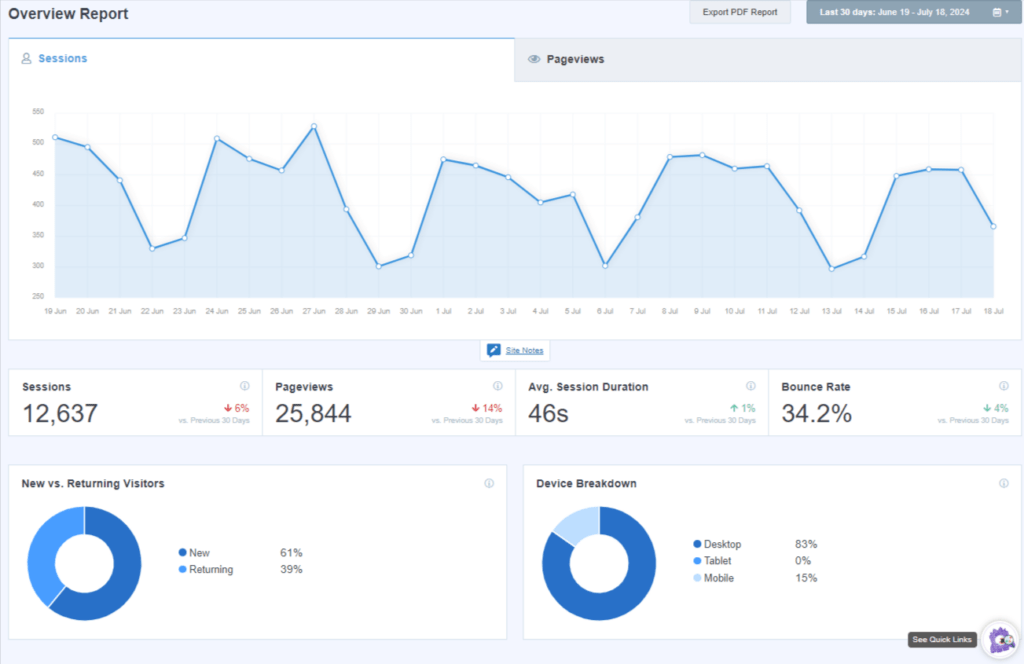
You can also see metrics such as page views, bounce rates, and conversion rates, all broken down by keyword. This data not only shows which keywords are performing well but also highlights the content that keeps visitors engaged.
Additionally, setting up conversion tracking and A/B testing for your affiliate links can give you a clearer picture of which keywords lead to sales, helping you fine-tune your affiliate marketing strategy.
With this information, you can optimize your existing content and prioritize new content based on what works best.
How to Optimize Affiliate Links with Keywords Using PrettyLinks
As an affiliate marketer, you’re probably all too familiar with the headache of long, unwieldy affiliate links. They’re overwhelming, aren’t they? You might find yourself wondering, “Where do I even start with keyword optimization?”
This is where PrettyLinks comes in. This tool helps you:
- Clear away the clutter of those lengthy links
- Highlight your optimized keywords
- Boost your SEO efforts
- Make your links easier to manage
- And more!
PrettyLinks’ link cloaking feature converts long, unorganized affiliate links into neat, keyword-optimized versions. As a bonus, it rebrands your affiliate links so they start with your domain name, adding a professional touch.
Go to the basic settings and paste your original affiliate link into the Target URL field. Then type in your keyword optimized slug into the Pretty Link field:
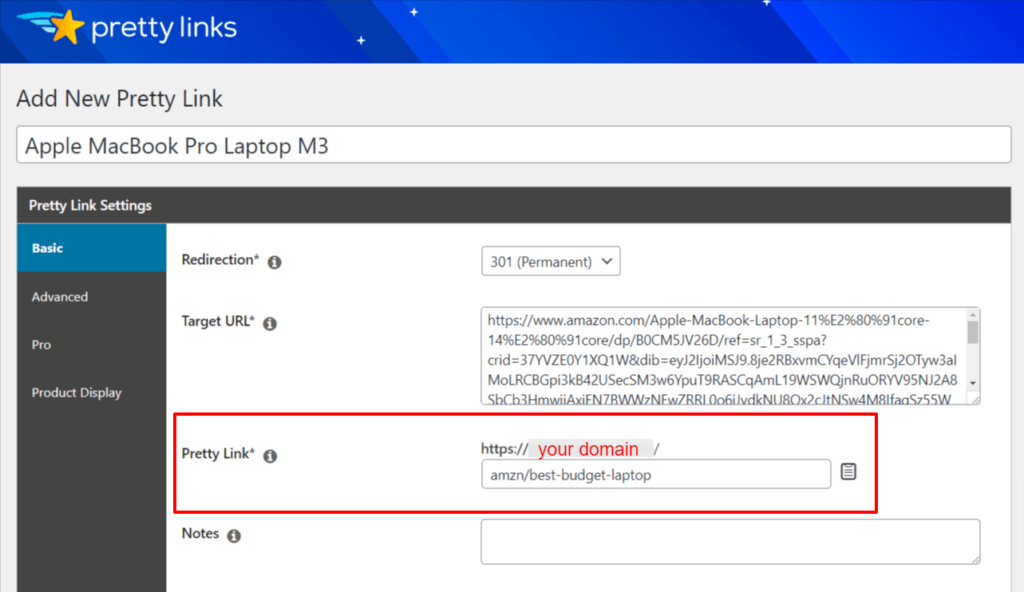
And that’s it! Just hit Publish and you have a promotion-ready affiliate link that begins with your domain name and includes your optimized keyword.
What Else Can You Do with PrettyLinks?
You might not know it (yet), but PrettyLinks delivers much more than keyword optimized affiliate links.
After you have your link, PrettyLinks will also help you place it into your content automatically, test different keyword-optimized links and track its performance.
Monetize Keyword-Optimized Content with Matching Links
Every keyword-optimized affiliate link should really pair up with its matching keyphrase in your content, right?
We imagine you’ve got a bunch of blog posts you want to slip in affiliate links. And the thought of trudging through each page to add them sounds like a massive headache and a serious time sink.
Not when you have PrettyLinks!
This nifty WordPress plugin lets you monetize your keyword-optimized content effortlessly. With the Keyword Replacement tool enabled, PrettyLinks will swap out all your targeted keywords across your posts and pages with optimized affiliate links.
Split Test Links to See Which Keywords Convert Better
Here’s another scenario you might find yourself in: say you’ve got a few different keywords you want to test out.
PrettyLinks has a solution for you there too: See Our Split Testing Support Doc >>
With its split testing feature, you can set up multiple versions of the same link, each tweaked with a different keyword. This setup lets you see clearly which keywords pull in more clicks and lead to better conversion rates.
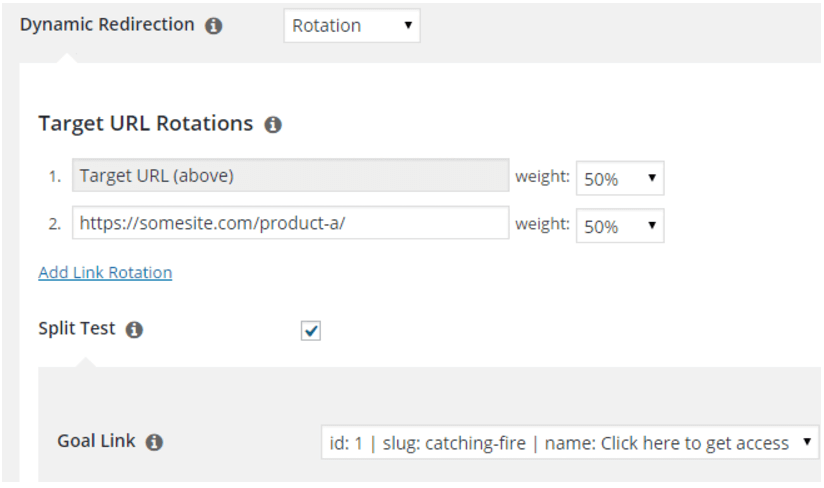
Get Detailed Reports About How Your Affiliate Link is Performing
Speaking of tracking, the last feature we’re going to talk about in this post is PrettyLinks’ detailed tracking and reporting system.
Similar to your split testing reports, you can also set up customized reports. This feature allows you to focus on specific details you’re interested in, such as who is clicking on your links, when and where these clicks are happening, and what devices are being used.
This level of detail helps you gain a clearer understanding of your audience’s behavior and optimize your strategy accordingly.
Optimize Your Affiliate Links Before It’s Too Late!
Now that you know how important it is to optimize your affiliate links with keywords, it’s time to take action.
You’ve learned the importance of understanding your audience and niche, conducting thorough keyword research, and creating high-quality content. You’ve also seen how keyword optimization can boost your search engine rankings, click-through rates, and overall user experience.
So, what’s the next step? It’s time to put all this knowledge into practice with PrettyLinks.
This powerful tool simplifies the process, allowing you to manage, cloak, and optimize your affiliate links effortlessly. With PrettyLinks, you can turn those long, messy URLs into clean, keyword-rich links that attract clicks and drive conversions.
>>> Click here to get started with PrettyLinks and optimize your links for better performance and higher earnings.
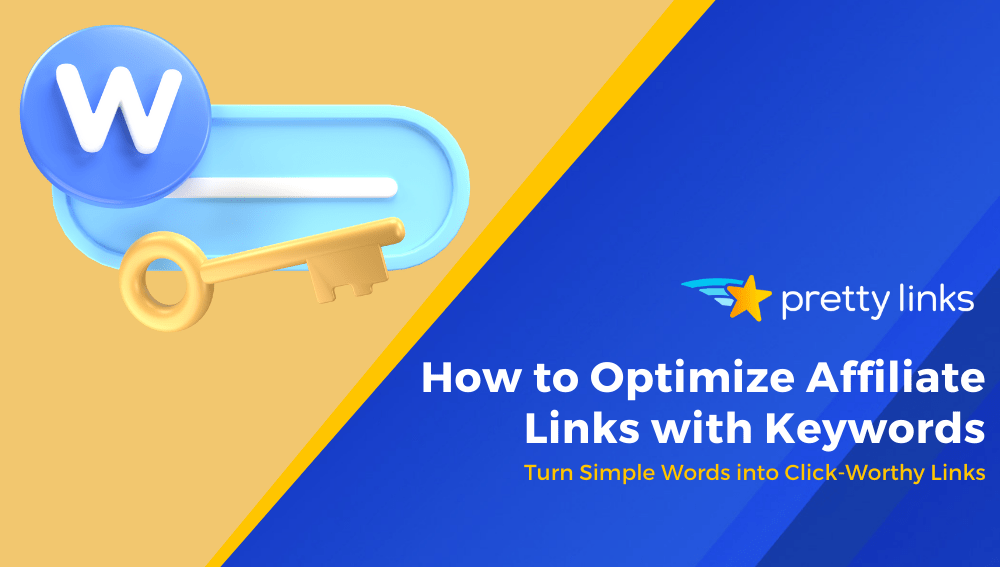




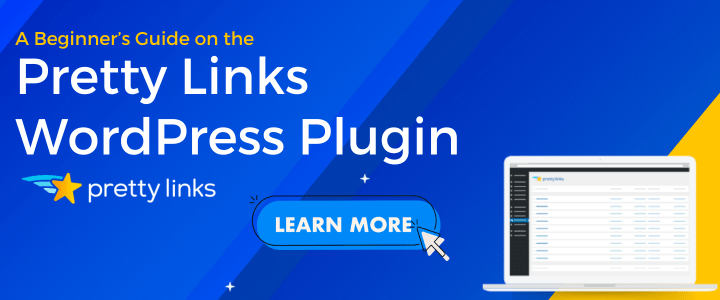


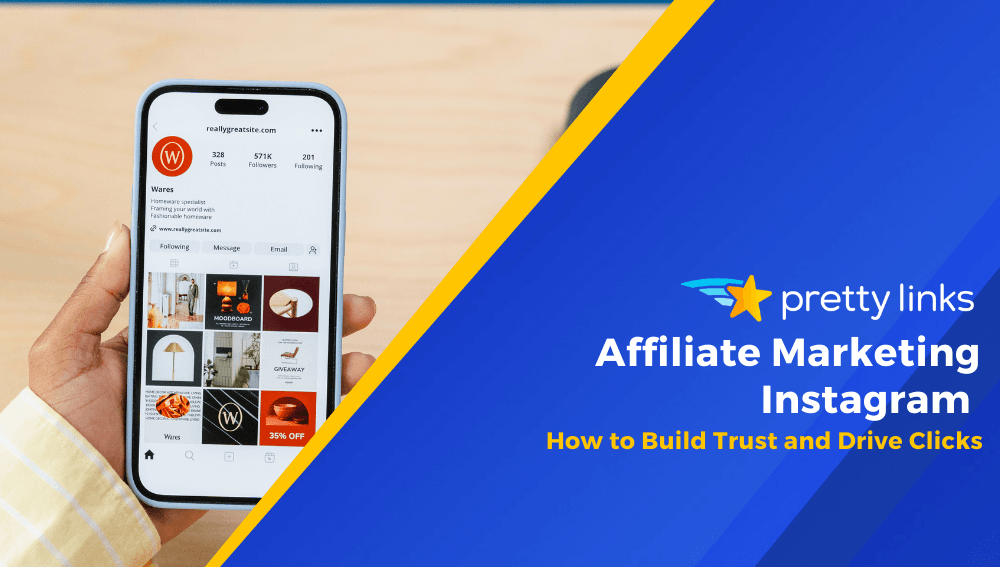
Leave a Reply